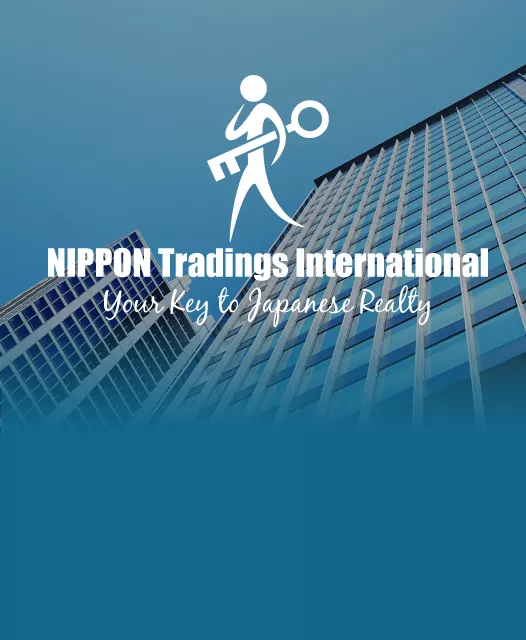My Tenant Died In My Property - When Tenants Become Sick or Die
The following article was written by Ziv Nakajima-Magen – Partner & Executive Manager, Asia-Pacific Nippon Tradings International (NTI)

When Tenants Become Sick or Die
While Japanese tenants, from a landlord perspective, are normally extremely docile and headache free, and while tenancies are generally long and stable as a rule - there is one issue that, while not unique only to Japan, is more common here due to the country's status as the world's fastest aging society - as landlords in Japan, our tenants are often elderly - which means that the likelihood of them becoming severely ill or passing away during their tenancy is higher than in most other countries.
Studios & 1 Bedroom Apartments = Solitary Tenants
As most experienced investors in Japan's property market are well aware, smaller and older condo units are Japan's "cash-cows", which generate the highest rental yields in the vast majority of cases, due to their extremely affordable purchase prices, and due to the fact that - in a country where birth rates are extremely low - these types of properties tend to attract the widest possible tenant-base - low to medium income earning singles, students, childless couples and single mothers - and, of course, an ever increasing number of retirees and pensioners.
In the case of elderly tenants, however, the fact that they can only afford these extremely small, old and cheap rental units, most likely means that they have little, if any, family to lean on - and in many cases are either childless, estranged from any living relatives, and extremely close to being destitute.
What this sad fact means in practice is that, their (and your, as their landlord) main body of support are local government welfare programs and support centers. These provide them with a rent allowance, other essential services, and are supposed to routinely check on their wellbeing by calling or visiting them regularly - although, if the welfare recipient tends to prefer to be left alone, government officials, who are already over-swamped with work in a rapidly aging society, tend to respect their wishes - which means that, in many cases, the only people to have any visual or spoken contact with these lonely old folks are their neighbors - and even their contact may be limited to a brief glance if and when they happen to cross paths coming into or out of their respective apartments.
Landlord Securities
Similar to other countries, in Japan as well, tenants are required to provide some form of landlord security when they move into a property. These securities can take three forms, all of which are limited by their scope and capacity, but provide the "first line of defense" in case a tenant becomes ill or passes away during their tenancy -
1. Personal guarantors
Personal guarantors are family members or acquaintances - and in cases of long tenancies, which began while the tenant was still in gainful employment, can be employers as well - who are, by virtue of co-signing the tenancy lease, legally responsible for any damages or expense caused by the tenant and incurred by the landlord, which the tenant for any reason does not or cannot pay for.
Personal guarantors are traditionally the weakest form of security, since, particularly in the case of elderly tenants, may no longer be able to live up to their obligations due to their age (parents, siblings, etc, who may be of similar or even older age - if still alive at all) - and in any case, with Japan's laws being tenant-oriented, their obligations are difficult to enforce.
2. Security deposits
"Money in the bank", in a very literal sense - but normally limited to only 1-2 months of rental income/expenses.
3. Rent insurance / Guarantee company
The best type of security, which covers 3 months of rental income/expenses, or more, depending on individual policies and circumstances.
Indefinite Hospitalization
In case a tenant is hospitalized with no end date in sight, or is hospitalized and then passes away in the hospital, the landlord may unilaterally cancel the tenancy lease, and begin work to renovate, repair and re-populate the property - while simultaneously taking action, if required, to try and retrieve the highest possible amount of compensation from the securities detailed above.
However, sometimes the unthinkable (if not uncommon) happens -

The Tenant Dies In the Property
If and when a tenant passes away in a property they are occupying, the following procedures, all of which can be quite costly, must take place -
* Removal of the body and cause of death investigation (performed by local police force)
* Death scene & remains cleaning (performed by special purpose companies)
* Buddhist purification ceremony (performed by local shrine monks)
* Removal and disposal of personal belongings
* Initial "standard" cleaning & odors removal
* Renovations & repairs
* Final "standard" cleaning & odors removal
Following the above procedures, the property can now be re-tenanted - however, the next tenant in line must, by law, be informed that a death has occurred in the property - and a notice to this effect ("Special circumstances notice") must be included in the advertisement of the vacant property.
In Japan, which, while not overly religious, is a deeply traditional and somewhat superstitious environment, most potential tenants would tend to avoid properties where a death has occurred - and, while accidental or natural deaths aren't avoided quite as stringently as properties where a murder or suicide has occurred - it would still be quite difficult to source the next tenant under these circumstances.
This results in most of these properties being advertised at significantly lower rent amounts - which, naturally, tends to draw lower quality tenants (by definition, anyone who is simply looking for the cheapest possible property, regardless of circumstances).
Mitigating Risk & Minimizing Damages
What, then, is a landlord to do, in a country where such a large percentage of potential tenants are elderly destitute pensioners and retirees? Not only would one deny one's self of a huge tenants database, but there's also a point to be made as to avoiding age discrimination practices and general cold-heartedness on behalf of landlords - these tenants well and truly need a break, mainly due to the fact that so many landlords shun them, for the exact reasons discussed above. Fortunately -
There's an Insurance Policy for Everything
Insurance companies in Japan, which, like insurance companies anywhere in the world, have quickly realized the opportunities the rapidly aging population presents, have risen to the challenge, and have come up with a "Death in Property" coverage clause, which can be added to any rental property. For a relatively low premium of only $20-30 annually (as of the date of this article being published), landlords can receive the following benefits if and when a tenant passes in the property -
1. Up to 1 mil JPY (app. $10,000 in cleaning, repairs & renovation expenses)
and, more significantly -
2. Up to 2 years of lost or reduced rental income as a result of the death (including both an extended vacancy AND re-population of the property at a lower rent amount).
As long as invoices are presented for the first list of items, and an advertisement is placed for new tenants (at the previous rent amount - so no need to reduce the asking rent) - the landlord will be eligible for full compensation as per the two clauses above - with the cleaning/repairs/renovation compensation distributed once the expenses have been incurred - and the two year rental income compensation distributed either at the end of the 2 year period, or at 1 year intervals (50% after one year, with the rest payable at the end of the period).
This type of policy does not discriminate between causes and circumstances of tenant death - and is therefore highly recommended, regarded of the actual age of the tenants - as younger tenants can also suffer accidental or health-related deaths - and at such a low premium, there's absolutely no reason not to apply for such coverage - the amount of headaches and expenses which it can help landlords avoid cannot be overstated.
















